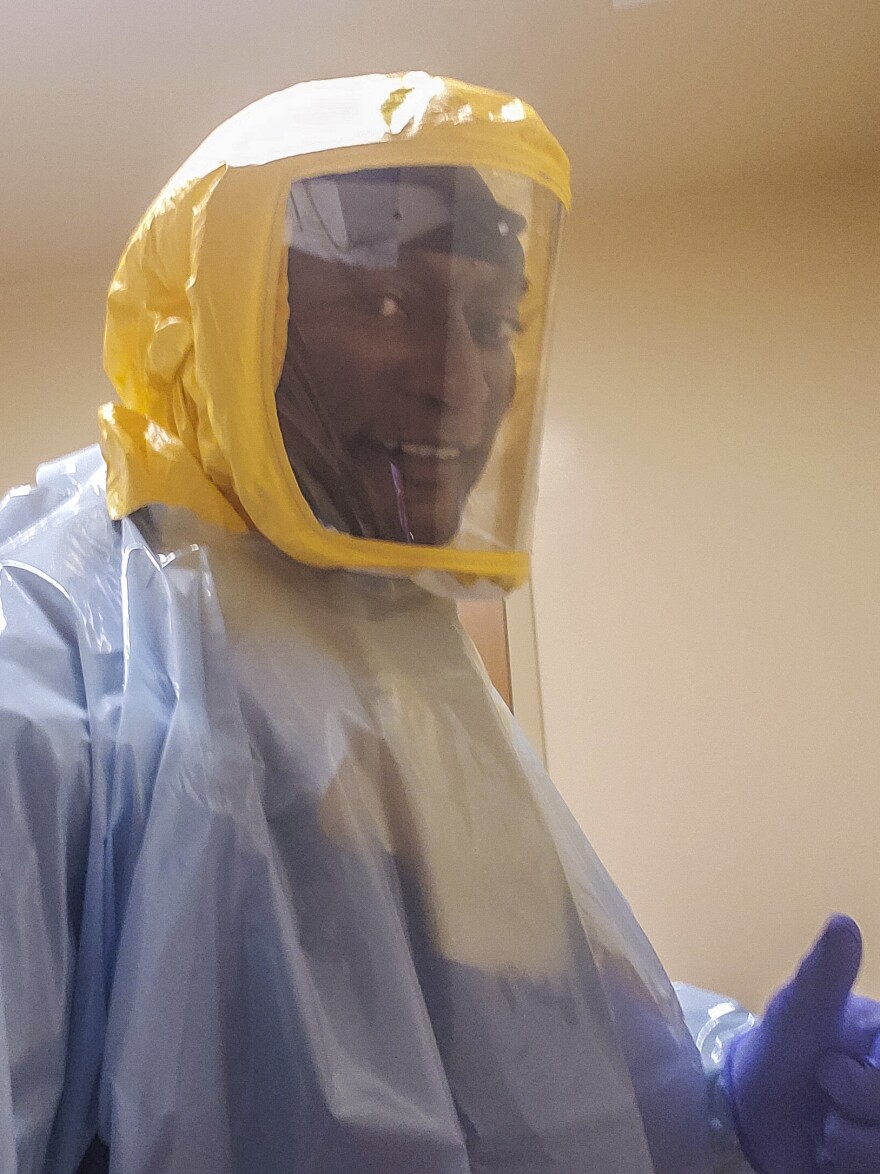Updated March 8, 2021 at 5:54 PM ET
One year ago, Grover Nicodemus Street treated his first case of coronavirus.
Since then, the traveling nurse — a military veteran who served in Iraq and Afghanistan — estimates that he's seen 3,000 people die as a result of the disease.
"What I have seen throughout the year, I would rather die, any other way of dying, than dying with coronavirus. It's a sad way to go," Street says in an interview with All Things Considered. "Your family is not there to hold your hand. The last person that a patient would see is my ugly mug.
"War doesn't even compare to this."
Street is one of the tens of thousands of traveling nurses chasing the country's coronavirus hot spots — from New Jersey to New York to Florida to California — deployed in the battle against a pandemic that has claimed more than half a million lives in the United States in the past year alone.
Street says the most memorable patient he has treated during the pandemic was a Black woman in her 30s, whose twin sister called every day.
"I would sing her church hymns," Street recalls. "Her sister said that she would love me to pray with her, and I would do that just for the sister, and for the patient."
"She was the first patient that I have ever had in 20-plus years of being nurse that died on me," he says.
The demand for nurses and other medical staff remains high around the country.
The American Association of Colleges of Nurses says that several factors are contributing to the shortage in nurses, including insufficient enrollment and faculty at nursing schools to meet the demand, a significant number of nurses reaching retirement age, and high stress levels that are driving nurses to leave the profession.
And on top of that, health care workers are also falling ill and dying from the virus.
"It's like playing Russian roulette, you're risking your life to go in a patient's room," says Street, who works with Fastaff Travel Nursing and is the author of a forthcoming book, Chasing the Surge: Life as a Travel Nurse in a Global Pandemic.
Street knows this all too well. He contracted the coronavirus while working in Tehachapi, Calif. — even though he was wearing full PPE, including both an N95 and a surgical mask.
"The reason why it's called an N95 is because it's 95% effective," Street says. "That 5% chance of getting it? I got it."
Luckily, he says, the only symptoms he had were the loss of taste and smell.
After he recovered, Street says he lived with the constant, nagging fear of catching the disease again — until he was able to get vaccinated.
"Having a vaccine has made me feel more comfortable going into the patients' room. I feel great. I feel much safer," he says. "My work environment is much more at ease."
Street says he had hoped to retire last year, but that won't be happening anytime soon.
"I've seen lots of nurses and health care workers quit because they can't handle it," Street says. "If people quit, who's going to take care of all the sick people that come into the hospital?"
And especially with another surge predicted, Street says, he feels compelled to continue his work on the front lines.
"This battle is not over yet," he says. "You can't stop fighting."
Farah Eltohamy is NPR's Digital News intern.
Copyright 2022 NPR. To see more, visit https://www.npr.org.




